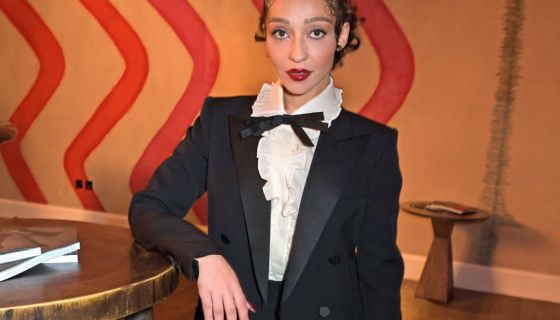
Source: David M. Benett / Getty
Meet Miriam Zinter: The Black woman who could pass for White with her fair skin, blonde, wavy hair and blue eyes. Zinter is usually faced with uncomfortable comments from White people who don’t realize she’s actually Black.
The 57-year-old woman wrote a think piece for the Huffpost about how the horrible things White people feel comfortable saying to her. The article included experiences throughout her life growing up in New York, where he two Black parents did their best to give her and her little sister the best life possible. She shared memories of eradicating racism in her lifetime, ultimately leading her to the work she does today as a community organizer.
The conversation reached Huffpost due to Zinter’s most recent interaction with a neighbor of nearly 30 years. Zinter recalls being outside of her house, gardening when a neighbor stopped by so she could pet his large, fluffy dogs.
“Why do you have a ‘Black Lives Matter’ sign on your front lawn,” her neighbor asked. “When all those people do is kill each other?”
Zinter responded with grave agitation, “You know I’m Black, right?”She continued to pet his dogs, needing the comfort of petting dogs in that moment to resist slapping her neighbor in the face.
The two continue an exchange where the neighbor says “No!” and Zinter arguing “Yes!” The neighbor attempts to gauge her Blackness, asking which of her parents are Black and her replying, “Both,” leading to an uncomfortable conversation about racism. Zinter assures her readers that this was not the first time she’s had to have this conversation with her White counterparts.
Both of Zinter’s parents, who currently live up the street from her, are Black but have white ancestors. Those recessive white genes were passed on to her, causing her to be born very light-skinned, with blue eyes and wavy hair. Zinter also notes that both of her parents’ families have “white” babies who pop up each generation.
“I have aunts, uncles and cousins on both sides of my family who are also white-presenting.”
Zinter remembers the story her grandmother’s cousin Neville, who left the family in the 1940s to pass for white so he could join the Army and fight in World War II. He later married a German girl, returned to Syracuse and never returned to being Black.
“Neville became a cautionary tale for me,” Zinter shares. “I never wanted to be like him.”
She also remembers her great-aunt, Annie Mother, who would pass as white to purchase properties and then sell or rent them to Black family members and other Black families who could not find decent, affordable housing.
“I wanted to be like Annie Mother, so I pursued a career in social justice, specifically issues related to housing,” Zinter expressed.
Zinter goes on to share more of the terrifying comments White people felt comfortable sharing with her in her lifetime.
“I’ve had people tell me it ‘disgusts’ them to see interracial couples,” Zinter shares. “They’ve told me they don’t understand why Black neighborhoods look so ‘ghetto,’ and that Black people are ‘animals’ or ‘thugs.’”
A bit different from the Netflix film, Passing, Miriam Zinter could pass in real life but chooses to use her seemingly positive privilege to defend the likeness of Black people and position her community to thrive.
Zinter began her career as a community organizer, was the executive director of a not-for-profit neighborhood organization, became the senior housing programmer for the City of Rochester and now works in the housing finance sector. She serves on several boards that serve people who are homeless and people who are poor. She is married, with two adult children and a spoiled shiba inu dog. Her parents live down the street from her, and she values every day she has with them. She has two sisters whom she loves very much and speaks with every day. She loves animals, comedy, books, food and wine.
Be sure to follow Miriam Zinter’s story on social media.







